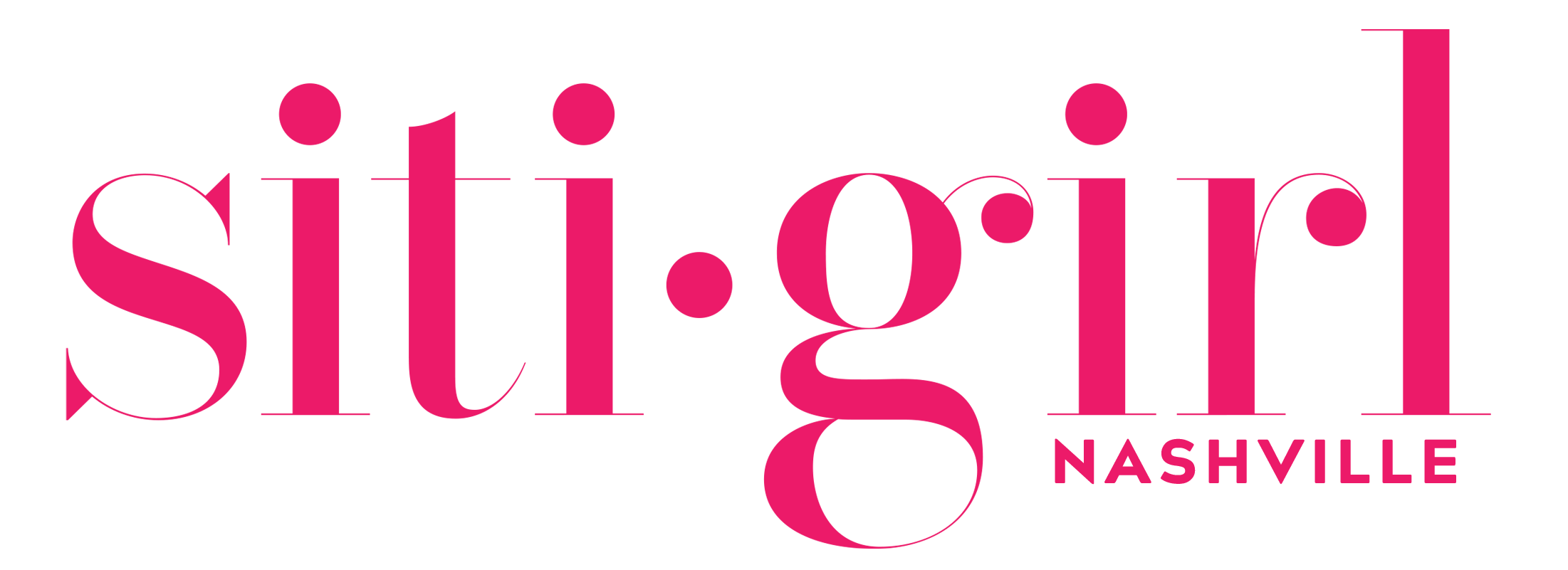Empowering Tips and Practices to Prioritize Self-Care, Cultivate Well-Being, and Embrace Diversity
As the world celebrates International Self-Care Day on July 24th, it’s an opportune time to honor the wisdom and experiences of Nashville’s diverse community of BIPOC (Black, Indigenous, and People of Color) women. Self-care is a crucial aspect of nurturing our physical, emotional, and mental well-being, and who better to offer insightful and empowering self-care tips than the remarkable BIPOC women of Nashville? In this special edition, we bring you a compilation of their perspectives, strategies, and practices to inspire and enrich your self-care journey.
Embrace Nature: Rediscovering Your Roots
Immerse yourself in the natural beauty that surrounds Nashville. Connect with nature through activities like forest bathing, gardening, or hiking. BIPOC women share how embracing their cultural roots and ancestral practices in natural environments contributes to their overall well-being.
- Traditional Movement and Dance: Many BIPOC cultures incorporate movement and dance as forms of self-expression and well-being. Women might engage in practices like African dance, hula, or yoga that connect them to their cultural roots while promoting physical fitness and mental balance. Performing these activities in natural environments adds an element of connection to the earth and enhances the experience.
Cultivating Mindfulness and Meditation:
Delve into the transformative power of mindfulness and meditation practices. Learn from BIPOC women who have embraced these ancient techniques, incorporating culturally diverse perspectives to find inner peace and balance amidst life’s challenges.
- Mindfulness in African Diasporic Traditions: BIPOC women with African heritage have found solace and inner peace by incorporating mindfulness practices rooted in African diasporic traditions. For example, they may draw inspiration from practices like Ifa (Yoruba spirituality), which emphasizes connecting with one’s inner self, ancestors, and the natural world. By engaging in meditation, prayer, and rituals that honor their cultural roots, these women cultivate mindfulness and tap into a deep sense of peace and resilience.
Prioritize Emotional Wellness:
Explore various ways to nurture emotional well-being. BIPOC women in Nashville emphasize the power of journaling as a tool for self-reflection and healing. They may incorporate cultural elements such as storytelling, poetry, or affirmations rooted in their heritage. By journaling, they can explore their thoughts, emotions, and experiences, gaining insight, and fostering personal growth.
- BIPOC women recognize the importance of seeking professional support through therapy or joining support groups that understand and value their unique experiences. They may specifically look for therapists or groups that have expertise in cultural sensitivity and trauma-informed care. These spaces provide a supportive environment where they can share their stories, gain validation, and receive guidance for healing and personal development.
- Traditional Chinese Medicine (TCM): BIPOC women from Chinese or East Asian backgrounds may explore TCM modalities such as acupuncture, herbal medicine, tai chi, or qigong. These practices focus on restoring the body’s balance, harmonizing energy flow, and addressing physical and emotional imbalances.
Celebrating Identity and Self-Love:
Discover empowering practices that celebrate your unique identity and foster self-love. Engage in self-reflection, explore your cultural heritage, and embrace rituals or traditions that help you connect with your roots. Hear from BIPOC women who have found strength and self-acceptance through honoring their diverse identities.
- BIPOC women proudly express their identities and heritage through their fashion and style choices. They embrace traditional garments, cultural accessories, and fabrics that represent their roots. For instance, women from South Asian backgrounds might wear sarees, salwar kameez, or other traditional attire, while Afro-Latinx women may adorn themselves with vibrant prints, headwraps, or jewelry that celebrate their African heritage. By embracing and showcasing their diverse cultural styles, these women find strength, confidence, and a deep sense of self-acceptance.
Cultivate Community: Building Stronger Connections
Explore the importance of building supportive communities. BIPOC women highlight the significance of creating safe spaces where women can come together, share their experiences, and uplift one another. Discover local organizations and initiatives that foster empowerment and inclusivity within the Nashville community.
- Nashville Feminist Collective: This organization aims to create a safe and inclusive space for women in Nashville, including BIPOC women. They host regular meetups, workshops, and events focused on issues such as intersectional feminism, social justice, and empowerment. Through their initiatives, they strive to amplify the voices of BIPOC women and promote solidarity among diverse communities.
- Stand Up Nashville: Stand Up Nashville is a coalition of community organizations that advocate for economic and social justice in the city. They work to empower marginalized communities, including BIPOC women, by fighting for fair wages, affordable housing, and equitable opportunities. Through community organizing, advocacy, and education, they promote inclusivity and challenge systemic inequalities.
- The Equity Alliance: The Equity Alliance is a grassroots organization that focuses on increasing voter registration, civic engagement, and policy advocacy among marginalized communities in Nashville, including BIPOC women. They provide resources, educational workshops, and platforms for community voices to be heard, empowering BIPOC women to participate in the political process and effect change.
- The Tennessee Immigrant and Refugee Rights Coalition (TIRRC): TIRRC is an organization that advocates for the rights and empowerment of immigrants and refugees in Nashville and throughout Tennessee. They provide support services, community education, and advocacy on issues such as immigration policy, language access, and cultural integration. Within their initiatives, they uplift the voices and experiences of BIPOC immigrant and refugee women.
- Conexion Americas: Conexion Americas is a nonprofit organization dedicated to empowering Latino communities in Nashville. They provide comprehensive services ranging from education and workforce development to legal assistance and community engagement. Through their programs, they support and uplift BIPOC women, helping them navigate challenges, access resources, and foster a sense of belonging and empowerment.
These organizations are just a few examples of the local initiatives in Nashville that prioritize creating safe spaces and promoting empowerment for BIPOC women. They offer opportunities for community engagement, support, and the amplification of voices, fostering inclusivity and advancing social change.
Holistic Wellness Practices:
Uncover a range of holistic self-care practices from the BIPOC community. Explore traditions like Ayurveda, traditional Chinese medicine, herbal remedies, and other culturally rich practices that promote balance and overall well-being.
- Ayurveda: Ayurveda is a traditional healing system originating from India. It emphasizes achieving balance and harmony in mind, body, and spirit. BIPOC individuals may incorporate Ayurvedic practices into their self-care routines, such as:
- Abhyanga: A self-massage using warm oils to nourish the body and promote relaxation.
- Meditation and Pranayama: Practices that focus on breath control and mindfulness to cultivate mental clarity and calmness.
- Ayurvedic herbs and spices: Incorporating specific herbs and spices into diet and self-care routines to support overall health and well-being.
- Traditional Chinese Medicine (TCM): TCM is a holistic healing system that has been practiced for thousands of years in East Asia. It includes practices such as acupuncture, herbal medicine, and movement practices like tai chi and qigong. BIPOC individuals may explore TCM practices as part of their self-care routines, such as:
- Acupuncture: The insertion of thin needles into specific points on the body to promote energy flow and balance.
- Herbal remedies: Using specific herbs and formulas to address specific health concerns and support overall well-being.
- Mind-body exercises: Engaging in practices like tai chi or qigong that combine gentle movements, breathwork, and meditation for promoting balance and relaxation.
- Herbal Remedies: BIPOC individuals often draw on their cultural heritage and traditional knowledge of herbal remedies. Examples include:
- Indigenous Herbalism: Incorporating herbs and plants used by Indigenous cultures for healing purposes, such as sage, cedar, or sweetgrass.
- Afro-Caribbean Herbalism: Utilizing herbs and plants from Afro-Caribbean traditions, like moringa, aloe vera, or hibiscus, for various health benefits.
- Latinx Herbalism: Embracing herbs commonly used in Latinx traditions, such as chamomile, peppermint, or guava leaves, for their medicinal properties.
Self-Care in the Digital Age:
Navigate the digital landscape mindfully and utilize technology to enhance your self-care journey. Learn from BIPOC women who share how they leverage online communities, social media platforms, and digital resources to connect, learn, and find inspiration.
- #BlackTwitter: The hashtag #BlackTwitter has become a vibrant online community where BIPOC women share experiences, insights, and humor. This online space allows for conversations surrounding social justice, cultural commentary, and everyday experiences. Through retweets, replies, and engagement, BIPOC women connect with others who share their perspectives, amplifying their voices and fostering a sense of community.
- Instagram Influencers and Content Creators: BIPOC women utilize Instagram to follow influencers and content creators who represent their diverse interests and identities. By engaging with accounts that align with their values, they gain inspiration, learn about new trends, and find resources for personal growth and well-being. Examples include lifestyle influencers who focus on self-care, body positivity, mental health, or cultural pride, and offer insights into their daily lives and experiences.
- Online Wellness Communities: BIPOC women connect with online wellness communities that cater specifically to their needs and experiences. Platforms like Shine App, HealHaus, or Ethel’s Club provide spaces for self-care, mental health support, and personal growth, with content and resources specifically curated for BIPOC individuals. These platforms offer meditations, workshops, discussion forums, and virtual events that foster connections and well-being.
- YouTube Channels and Podcasts: BIPOC women create and engage with YouTube channels and podcasts that cover a wide range of topics, including self-care, empowerment, spirituality, and cultural experiences. They find inspiration and guidance from creators who share their perspectives and offer insights into navigating life’s challenges. Examples include podcasts like “The Read” and “Therapy for Black Girls,” which provide a platform for meaningful discussions and personal growth.
- Online Courses and Webinars: BIPOC women access online courses and webinars to learn new skills, expand their knowledge, and engage in personal and professional development. Platforms like Coursera, LinkedIn Learning, and Skillshare offer a vast array of courses that can be accessed remotely. BIPOC women may also seek out webinars and virtual workshops focused on topics such as entrepreneurship, leadership, or cultural education.
These examples demonstrate how BIPOC women leverage online communities, social media platforms, and digital resources to connect, learn, and find inspiration. By engaging with these spaces, they access diverse perspectives, build supportive networks, and engage in personal and collective growth, ultimately empowering themselves and others.
International Self-Care Day is a reminder to prioritize our well-being and honor the unique experiences and perspectives of BIPOC women. By embracing the wisdom shared by the incredible women of Nashville, we can create a more inclusive and diverse self-care practice. Let’s celebrate this day by cultivating self-care routines that honor our heritage, promote holistic wellness, and empower women from all walks of life. Remember, self-care is a journey, and with the collective strength and support of our diverse community, we can all thrive and embrace our authentic selves.




Leave a Comment